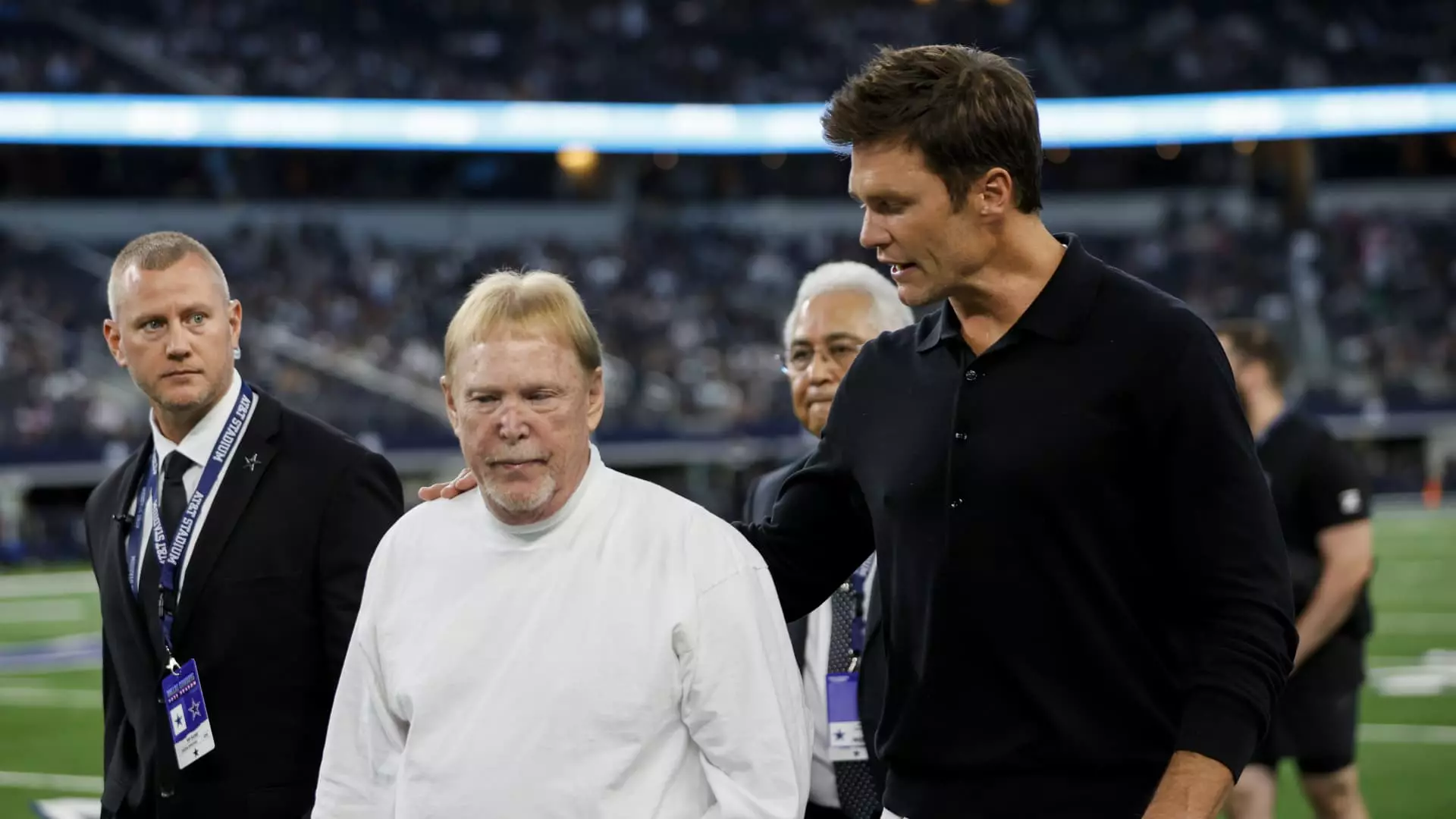In an unprecedented move reshaping the dynamics of the National Football League (NFL), Tom Brady, celebrated for his record-breaking career as a seven-time Super Bowl champion, has officially become a minority owner of the Las Vegas Raiders. This announcement, made on a recent Tuesday, signals a new chapter not just for Brady but for the Raiders as well, as they continue to build their brand in Las Vegas amid significant growth in revenue and valuation.
Brady’s investment comes through a partnership with Tom Wagner, founder of Knighthead Capital, wherein they purchased a 10% stake in the franchise for approximately $220 million. This investment values the Raiders at $3.5 billion, but it’s notable that Brady and Wagner also had to pay a 10% “flip tax,” which will ultimately benefit the other 31 owners in the league. This unique financial structure illustrates the complexities of ownership in the NFL, where collaboration among owners plays a significant role in decision-making and revenue sharing.
Furthermore, the Raiders have seen a substantial increase in value since moving from Oakland to Las Vegas in 2020. Originally valued among the lowest in the league, the franchise has soared in worth, illustrating the economic potential and attractiveness of the Las Vegas market. Interestingly, while the team is now valued at $3.5 billion, various assessments—such as CNBC’s—indicate that the Raiders could be worth as much as $7.8 billion, suggesting that Brady and Wagner might have received a considerable discount on their investment.
The Market Surge Post-Move
As the Raiders transitioned to Las Vegas, they not only secured a new home at Allegiant Stadium but also tapped into a thriving market that drastically increased their revenue streams. The organization reported $780 million in revenue for 2023, ranking third among NFL teams. The ticketing strategy has also proven instrumental: despite having one of the smallest stadiums with a capacity of just 65,000, the Raiders charge the highest average ticket price in the league, reflecting their effective strategy to optimize earnings through pricing.
Moreover, Allegiant Stadium has diversified revenue intake by hosting numerous events aside from football, contributing over $50 million in additional income through concerts and college football games. This multi-faceted approach to revenue generation highlights the Raiders’ adaptability and strategic planning in a competitive sports landscape.
Brady’s Transition to Ownership
While Brady’s transition from player to owner may seem seamless, the limitations placed upon him as a minority owner raise important questions about his dual roles. His capacity to cover Raiders games while being prevented from attending production meetings or having access to team facilities adds a layer of complexity to his situation. Furthermore, he will need to navigate the NFL’s stringent rules regarding public statements to ensure there are no conflicts with his new ownership responsibilities.
Carving out a niche in the NFL ownership landscape, Brady must balance being a prominent public figure and an insider without overstepping the bounds of his new role. It’s critical for him to align his actions and statements with the team’s image while respecting the league’s regulations. Such constraints are not uncommon for minority owners, especially those with prior high-profile athletic careers.
The Raiders now find themselves in a unique position—boasting a legendary player among their ownership ranks. This partnership not only leverages Brady’s star power to enhance the brand but could also provide insights into player development, fan engagement, and overall organizational strategy. As a minority owner, Brady can contribute significantly to the Raiders’ objective of increasing their competitiveness while honoring the rich history of the franchise.
Tom Brady’s influential role as a minority owner of the Las Vegas Raiders represents a significant shift in the NFL landscape. His partnership with Tom Wagner signifies a new era for the Raiders, equipped with fresh perspectives and enhanced business strategies. As the NFL continues to evolve, the implications of Brady’s ownership will likely resonate throughout the league, setting a precedent for future player-owners and influencing how franchises interact with their fan bases in an increasingly commercialized environment.

